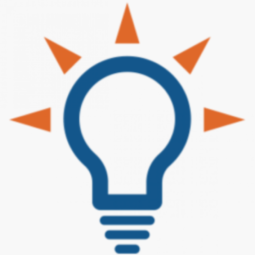Thomas Harbison’s Profile
Courses
COM 100 Introduction to Communication Studies
This is a test site for using open lab for COM 100, an awesome course and way fun to teach.
Available assignments of Prep-Test for the Spring 2020 Semester.
ENG 201 Fall 2021 with Prof. Perry
English 201: Introduction to Literature, Fall 2021
CRJ 204|Criminal Justice and the Urban Community|Margaryan
This course takes a critical approach to the study of crime and justice in urban settings. Course materials examine contemporary crime-related issues that affect urban communities within a historical and sociological context. The course highlights the intersections of deviant behavior and the criminal justice system within the structures of class, race, gender, and power inequalities. Topics explored may include racial profiling, juvenile delinquency, media representations of crime, policing, the war on drugs, and prisoner re-entry.
Language Race and Ethnicity in the U.S and its Territories
This course explores historical, cultural, and theoretical perspectives on the relationship between language, race, and ethnicity in the United States and its territories. It examines how language is understood to reflect, reproduce, and/or challenge and defy racial and ethnic boundaries, and how ideas about race and ethnicity influence the ways in which people use and construe language. It covers topics such as racialization and racism, ethnicization, notions of authenticity, repertoire, codeswitching and style shifting, linguistic mocking and linguistic racism, language ideology, and identity formation. This course will examine language varieties such as Black American English and its cross-racial uses by other groups, Chicano English and Spanglish, Asian American English, Hawaiian English, and American Indian English.
Communities
A space for sharing information about the upcoming transition from Blackboard to Brightspace.
The online community for the BMCC Academic Senate.
OpenLab for Students in a space for students to access information about OpenLab workshops, how to use OpenLab tools and much more! Need support special support? Send an email to openlab@bmcc.cuny.edu. This community is for students only. However, faculty and staff are more than welcome to browse our website!
Black Studies Across the Americas (BSAA)
This project is supported with U.S. Department of Education Title VI National Resource Center funding from the Center for Latin American Studies at The Ohio State University and the NYU Center for Latin American and Caribbean Studies as well as the the BMCC Dept. of Ethnic and Race Studies and the President’s Fund for Innovation and Excellence, funded by McKenzie Scott. BSAA faculty and student researchers create OERs to help integrate Black studies into disciplines that historically don’t address Blackness and questions of race and ethnicity. BSAA OERs are hosted here on the BMCC OpenLab to foster further collaboration and use of the OERs at BMCC and beyond.
Teaching on the OpenLab | Summer 2022
A virtual learning community for faculty who applied and were accepted to participate in the June 2022 Teaching on the OpenLab. (image credit: “OPEN” by Tom Magliery is licensed under CC BY-NC-SA 2.0)
Projects
A space for faculty to share ideas about how to support student learning during the transition to distance learning for the remainder of Spring 2020. Please request to join if you are faculty at BMCC. Click on “Visit Project Site” in the upper right to access BMCC’s Course Continuity Resources website.
A space for faculty to share information about the projects they worked on while on academic leave. Contact Greer McPhaden for information about how to submit your project. If you join this group, you will receive email notifications when new projects are submitted.
MMA 100 class videos.
Opening Gateway Project Summer 2020
In this project I will apply Active Learning strategies I have learned at the Opening Gateways seminars such as Webwork, EdPuzzle, Plickers, Inquiry Base Learning, Flipped Classroom, Universal Design for Learning, and HelpYourMath software and Videos to be used in the students mathematics projects such as the Stock Market Game and ePortfolio in addition to Lesson Planning in the MAT56 course that will be available on the BMCC OpenLab website. Please view the Mathematics Department Syllabus for the MAT56 course of the Integrated Algebra and Trigonometry that I will be teaching in the Spring 2020 semester by clicking the link here at: https://www.bmcc.cuny.edu/wp-content/uploads/ported/syllabi/MAT56.pdf
In this project I will apply Active Learning strategies I have learned at the Opening Gateways seminars.
